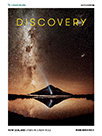Mumbai is India’s most populous city, home to 22 million. It’s dotted with the country’s highest skyscrapers, in which employees work the longest hours in the world, delivering India’s highest GDP. The financial hub houses the headquarters of 21 of India’s 54 largest companies within Forbes’ Global 2000.
Startups are a more recent addition to the economic landscape. In 2017, Mumbai’s entrepreneurs raised funds worth US$609.3 million, the second highest of any Indian city. It was behind Bengaluru, an established tech centre in the country’s south, which remains a more attractive proposition to many because of its tech infrastructure and lower costs.
But some companies have gone against that tide. Ithaka, a platform that provides personalised travel recommendations, started up in Bengaluru but left after six months, finding both talent and investment lacking. ‘After moving to Mumbai, within a couple of months we got our first angel investment commitment and we were also able to set up our first team and grow from there,’ says Ithaka’s founder, Rahul Singh. ‘This was partially because our alma mater is in Mumbai, so we had a strong network here. Also, we felt there was a higher concentration of angel investors.’ Singh attended the Indian Institute of Technology, Bombay, which has nurtured a staggering number of the city’s entrepreneurs.
However, he acknowledges weaknesses when compared with Bengaluru. ‘One major problem with Mumbai is hiring good developers. You either pay too much for talent or end up with unpolished workers whom you have to groom. But the talent is stronger on the business side; it’s easy to recruit smart people in operations and growth roles, which is important for us.’
Kajol Motiramani, a marketing and business development executive for digital marketing company The Minimalist, credits Mumbai with helping the startup’s growth. ‘It is India’s financial capital with a vibrant business ecosystem and rapidly growing opportunities,’ she says. ‘Being in the middle of the action has given us access to top-notch national and international clients, as well as the best creative talent in the country.’
The Person: Ajay Ramasubramaniam
‘Operating accelerators, incubators or any other broad-based entrepreneurship ecosystem programme is possible only if one views it with passion,’ says Ajay Ramasubramaniam.
An entrepreneur who began his career in Tanzania, he is now director of Zone Startups India, overseeing tech accelerators and managing early-stage venture funds in India for the Toronto-based brand. The company currently has a portfolio of more than 200 startups built over five years and has created 1,500 jobs. In 2016, it created empoWer, India’s first tech accelerator focused on women entrepreneurs.
‘My role cannot be treated as a job,’ he says. ‘The thrill of being able to work with a multitude of entrepreneurs and being able to support them at an early stage, leading to success, gives me immense joy and happiness.’

But it’s also serious business. Ramasubramaniam describes Mumbai as ‘the maximum city; the city that never sleeps’, where life is so fast-paced that ‘unless you have the fire in your belly, it is difficult to compete’.
In that vein, Zone Startups India accepts only a small proportion of applicants. He explains: ‘If accelerators can’t build a profit-and-loss statement and reach sustainability, it is difficult to be able to drive the thought of bootstrapping, revenues and profitability, unit economics and scaling in the minds of the entrepreneurs whom we support.’
There’s never a dull moment in the quest to find and nurture the next big startups. ‘One has to be iterative. The mix of startups keeps changing, and trends keep changing,’ says Ramasubramaniam. ‘I love what I do and it keeps me on my toes at all times, making me look forward to each day as one when I will get to learn and do something new.’
The Product: Dream11

It’s predicted that India’s online gaming sector will be worth US$1 billion by 2021 and tech giants like Tencent are getting in on the action: last year, it invested in Mumbai-based fantasy-gaming outfit Dream11.
Founded in 2012 by Harsh Jain and Bhavit Sheth, Dream11 allows users to create fantasy teams in football, kabaddi, NBA basketball and, the most popular category, cricket. Indeed, Indian cricketer Mahendra Singh Dhoni is the company’s brand ambassador. After forming teams, users score points based on live games.
In September, the company reported it had 41 million users but pointed out in an interview with inc42.com that there are hundreds of millions more sports fans across India who form its potential market. The company is concentrating on winning users in its domestic market rather than turning its sights further afield.
Late last year, the platform entered a five-year deal with the International Cricket Council, becoming its official fantasy game partner. The agreement has bolstered Dream11’s profile and legitimacy, with its name now part of ICC marketing and branding.
Ones to watch
Stay safe online
Founded in 2013, Sequretek develops cybersecurity solutions for companies, with services covering vulnerability management, malware research and compliance issues. The venture is now looking to expand to the US.
Deals on wheels
With ‘unicorn’ potential in 2019, CarTrade is an online car classifieds startup. The company merged with rival Carwale.com in 2015 and claims to have 15 million unique users per month.
Skills depot
UpGrad is an online education company that aims to give university graduates additional skills to raise their employability. It has served more than 300,000 workers in India but is looking to aid more than a million in the next five years.
Cathay Pacific flies to Mumbai from Hong Kong 10 times a week














